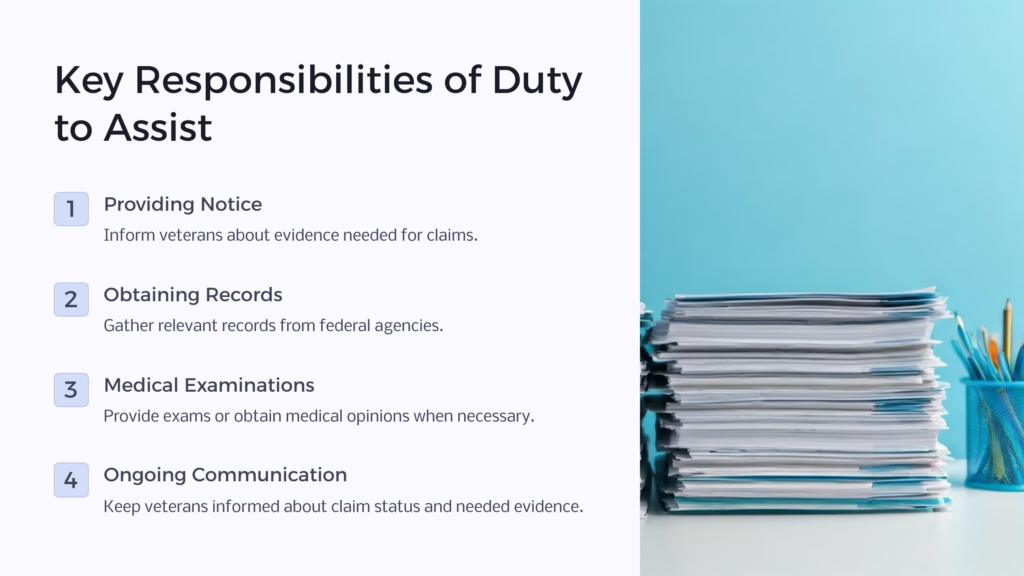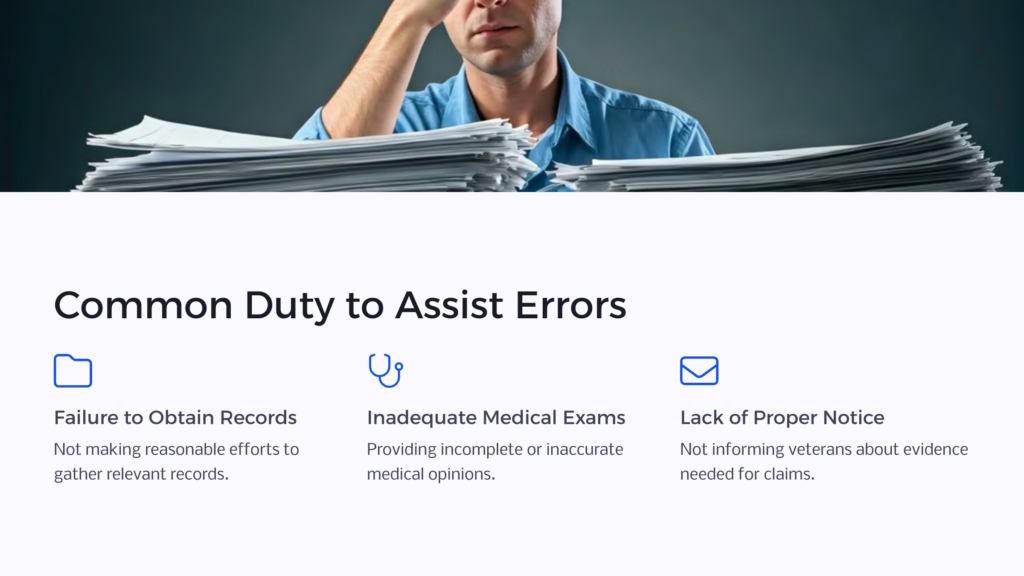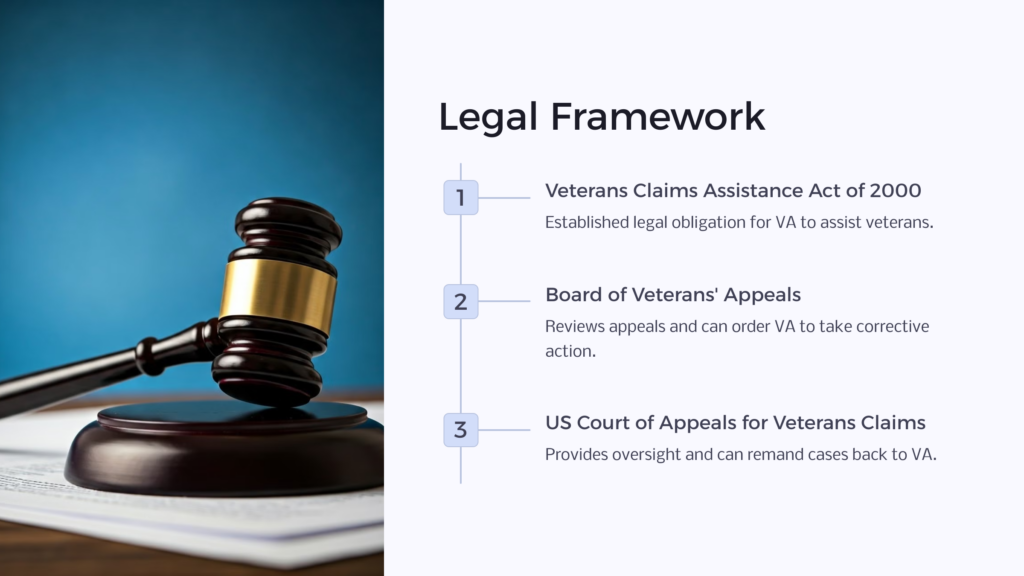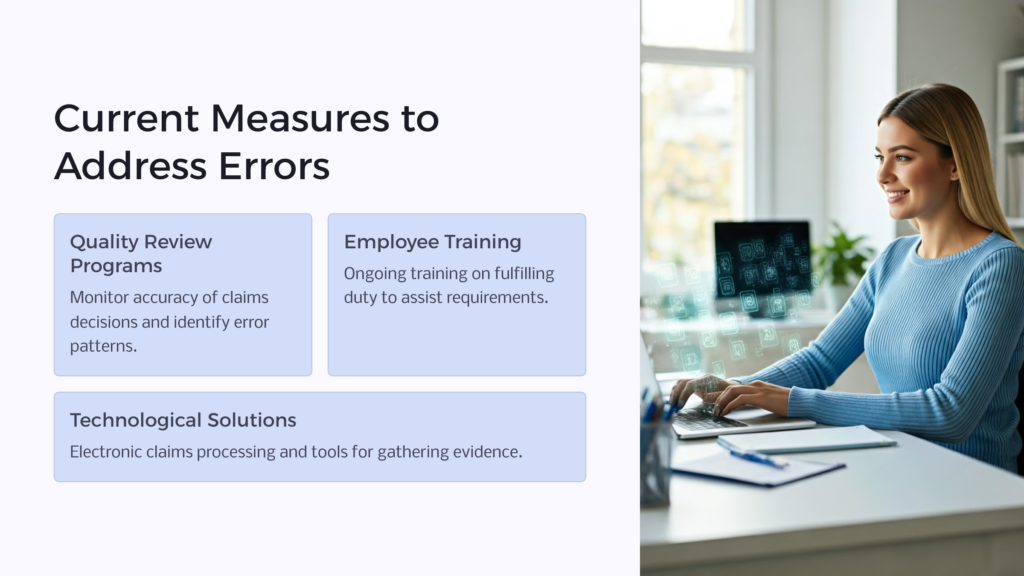The Department of Veterans Affairs (VA) is responsible for providing benefits and services to those who have served our country in the military. This includes ensuring veterans receive the benefits they are entitled to, such as disability compensation, health care, education, and housing assistance. One of the cornerstones of the VA’s process in delivering these benefits is its “duty to assist” veterans in substantiating their claims. However, the concept of “duty to assist” is not without its complexities and challenges, particularly when there are errors in the process.
Understanding Duty to Assist

The duty to assist is a legal obligation imposed on the VA by Congress, primarily through the Veterans Claims Assistance Act of 2000 (VCAA). This law mandates that the VA assist veterans in gathering the evidence necessary to support their claim for benefits. It includes several key responsibilities:
- Providing Notice: The VA must inform veterans about the evidence needed to substantiate their claims.
- Obtaining Records: The VA is required to make a reasonable effort to obtain relevant records from federal agencies. These include service records, treatment records from VA medical facilities, and other federal records.
- Providing Medical Examinations: When necessary, the VA must provide medical examinations or obtain medical opinions to help substantiate a veteran’s claim.
- Ongoing Communication: The VA must keep the veteran informed about the status of their claim and any additional evidence needed.
The duty to assist is designed to level the playing field, acknowledging that some veterans don’t have the resources or ability to gather all the necessary evidence on their own.
What Are Duty to Assist Errors?

A duty to assist error occurs when the VA fails to fulfill its legal obligations to help a veteran develop their claim. Some of these errors include:
- Failure to Obtain Relevant Records: If the VA does not make a reasonable effort to obtain the records relevant to a claim, this would be a duty to assist error. This includes private medical records that the VA failed to request.
- Inadequate Medical Examinations: Another duty to assist error occurs if the VA provides a medical examination, obtains an incomplete medical opinion, fails to address the necessary issues, or is inaccurate.
- Lack of Proper Notice: If the VA does not properly inform the veteran of the evidence needed to substantiate their claim, this would be a duty to assist error.
- Inadequate Efforts to Gather Evidence: If the VA fails to pursue all reasonable avenues to gather the necessary evidence, this is also a duty to assist error. For example, if the VA does not follow up on leads or seek out alternative sources of evidence when the primary source is unavailable.
These errors can have significant consequences for veterans including delays or even denials of benefits. At a minimum, they require the veteran to put in more effort themselves to substantiate their claims.
The Impact of Duty to Assist Errors on Veterans
The most immediate consequence of duty to assist errors is the delay in receiving benefits. Veterans who are unable to work due to service-connected disabilities or who need medical care may face financial hardship or health deterioration while waiting for their claims to be resolved.
These errors can also lead to the wrongful denial of benefits. When the VA fails to do what’s required by law, a veteran’s claim could be denied due to lack of evidence. This can result in veterans missing out on benefits they rightfully deserve, leading to long-term financial and health-related consequences.
Veterans can and should appeal these denials, but that’s often a lengthy and stressful process that can take years to resolve. During this time, veterans may struggle to get by.
Legal Background of Duty to Assist Errors

The legal framework surrounding the duty to assist is rooted in the Veterans Claims Assistance Act of 2000 (VCAA). This was passed to address concerns that the agency was not doing enough to help veterans with their claims, leading to a high rate of benefit denials.
Under the VCAA, duty to assist errors are not supposed to be held against the veteran. If an error is identified, the claim is typically sent back to the VA for reconsideration. The Board of Veterans’ Appeals (BVA) plays a critical role in reviewing these types of appeals. If the BVA finds that the VA did not fulfill its duty to assist, it can order the agency to take corrective action. This may include obtaining missing records or providing a new medical examination.
The US Court of Appeals for Veterans Claims (CAVC) provides oversight of the duty to assist program and can review decisions made by the BVA. If the CAVC finds that an error occurred, it can remand the case back to the VA for further action. This multi-tiered review process is designed to protect veterans’ rights and ensure that errors made by the VA do not prevent them from receiving the benefits they deserve.
Addressing Duty to Assist Errors: Current Measures and Challenges

Despite the legal protections in place, addressing duty to assist errors remains a significant challenge with several factors contributing to the problem. These include:
- Resource Constraints: The VA is often overwhelmed with the volume of claims it must process. Resource constraints, including staffing shortages and budget limitations, can lead to inadequate attention to individual claims, increasing the likelihood of errors.
- Complexity of Claims: Benefit claims can be highly complex, often involving multiple medical conditions, detailed service records, and many pieces of evidence. The more complex the claim, the more chances there are for duty to assist errors to occur.
- Training and Oversight: Proper training and supervision of VA employees are vital to prevent duty to assist errors. However, variations in training quality and oversight practices can result in inconsistent application of the duty to assist across different VA offices.
To address these challenges, the VA has implemented several measures over the years. Some of these include:
- Quality Review Programs: The VA has established quality review programs to monitor the accuracy of claims decisions. They are designed to identify patterns of repeat errors and provide feedback to employees to improve their performance.
- Employee Training: The VA is committed to the ongoing training of its employees, focusing on the importance of fulfilling the duty to assist requirements and the proper way to gather evidence and arrange for the correct medical examinations.
- Technological Solutions: The VA has also explored technological solutions to improve the accuracy and efficiency of claims processing. For example, the VA has implemented electronic claims processing systems and developed tools to help employees identify and gather relevant evidence more effectively.
Despite these efforts, duty to assist errors persist. Many veterans advocates argue more needs to be done to ensure veterans receive the assistance they need.
The Positive Aspect of Duty to Assist Errors
While duty to assist errors are not typically welcome news for veterans, they do have one positive point. When an applicant gets notifications of one of these mistakes, it means their application has not been denied and there may still be time to fix whatever is wrong. This can help point out where their applications might be lacking. Ultimately, depending on the severity of the error, it can lead to fewer denials once corrected.
Conclusion
The duty to assist is a vital component of the VA’s obligation to support veterans, ensuring they receive the benefits they have earned through their service. However, errors present a significant challenge, with the potential to delay or deny benefits and cause considerable frustration for veterans.
Addressing these errors requires a comprehensive approach that includes enhanced resources, improved training, technological advancements, and legislative reforms. Collaboration between the VA and veterans’ organizations, as well as proactive engagement by veterans themselves, can also play a crucial role in reducing the occurrence of these errors and improving the overall claims process.
For veterans navigating the complex world of VA benefits, help is available. Veterans service organizations like the Disabled American Veterans (DAV) and the American Legion can provide aid and advice. Vets can also check out Benefits.com for more information.
Ultimately, ensuring that veterans receive the support they need, the VA benefits system is not just a legal obligation but a moral imperative, recognizing the sacrifices made by those who have served their country.
 Benefits.com Advisors
Benefits.com Advisors
With expertise spanning local, state, and federal benefit programs, our team is dedicated to guiding individuals towards the perfect program tailored to their unique circumstances.
Rise to the top with Peak Benefits!
Join our Peak Benefits Newsletter for the latest news, resources, and offers on all things government benefits.





















